Interview with Dawn Carmichael of Providence Health Services
by Brian Saber
 Dawn Carmichael, a Premium Member of Asking Matters, is a Philanthropy Officer for Providence Health Services in Alaska. Asking Matters President Brian Saber recently had the chance to talk to Dawn about asking. Below is a transcript of their conversation.
Dawn Carmichael, a Premium Member of Asking Matters, is a Philanthropy Officer for Providence Health Services in Alaska. Asking Matters President Brian Saber recently had the chance to talk to Dawn about asking. Below is a transcript of their conversation.
Brian: Hi Dawn. So what’s your Asking Style?
Dawn: My Asking Style is Rainmaker strongest and Mission Controller second. These styles both fit me well and consistently hold true.
Brian: So your analytic side really predominates?! What’s most important to you in preparing for a meeting with a donor?
Dawn: I like to be very well prepared. I want to have as much information as possible before going into a meeting with a potential donor. That said, if I don’t have much information that is okay too, because I don’t mind asking questions to get to know the donor. I like the investigation component of my job and then meeting the person to learn “the rest of the story.”
Brian: The ” I don’t mind” not having all the info is definitely your Rainmaker speaking! Dawn, do you ever ask for a gift the first time you meet a donor and, if so, under what circumstances? How do you compensate for that? This is something many of our members wrestle with.
Dawn: As a major gift officer you would think that an ask on the first visit would be totally out of line, and often it would be. However, if I’ve had a lot of interaction before meeting the donor in person, then it might be okay. During the meeting I will gauge if all is going well and, if so, then I will proceed with my intended game plan. If the discussion turns and the original game plan doesn’t feel appropriate I will change my tactic. That said, at every visit I always provide the donor an opportunity to give, and that may include a soft ask at the leadership level of $1,000.
Brian: Thanks, Dawn. So do you sometimes ask for a gift when you haven’t given the donor a heads up?
Dawn: I go to every meeting with an ask in mind, and with a list of questions to help me determine that we are the right fit, both personally and organizationally.
Brian: Does the donor know explicitly that you’d like to ask for a gift? If not, how do you test the water?
Donors give to meet their needs not ours
Dawn: More often than not the donor has a pretty good idea why I am coming to visit because they know I represent Providence Foundation, the fundraising arm of Providence. However, there are those occasions when the prospective donor may not know why I’m visiting or is new to the organization. In those cases, I start by explaining the role of the Foundation and the mission of our organization.
However, I still try to spend most of my time listening. Listening is most important. Donors give to meet their needs not ours, so it is extremely important to determine what is important to them and how our mission can fulfill their need.
Brian: I really like that – “donors give to meet their needs, not ours.” What do you think your donors need most?
Dawn: Bottom line, the donors wants to know their investment is going to where they intended, that the program or service is worthy and needs funds to continue, and that it will make a difference in someone’s life. It is extremely important they understand that our organization will be a good steward of their investment, large or small.
Brian: We hear a lot about metrics and outcomes. Do you find your donors are asking for proof of results more than they used to?
Dawn: For the most part, our donors don’t even know these terms – it is more within the industry that we hear about meeting metrics and positive outcomes. I do find, however, that our donors are asking more about specifically where their funds are being use and/or dictating exactly where they want their funds to be used.
Instead of metrics and outcomes, our donors are mostly satisfied with a story about a child that their donation helped, or a cancer patient whose way we eased through the clinical process. Stories are the very best way to satisfy the donors’ need to know how their donation made a difference in a patient, family or child’s life. This is our opportunity to demonstrate trust, which can make donors even more supportive in the future.
Brian: So, you say donors want to hear stories about the impact you’ve made on a patient, family or child’s life. However, you are an Analytic. That tells me your comfort level with stories is more on the outcomes, goals, and systems side. How do you reconcile that and give the donors what they need?
Dawn: You are so right; my storytelling skills are certainly being put to the test, as I’m most comfortable with the outcomes, goals, and systems side. I have had to listen and practice a lot. However this has given me the opportunity to reach out to our nurses and physicians to hear some of their stories and get a better understanding of what patients and families go through in vulnerable situations. And this is making me a better philanthropy officer, as I understand the need and our impact that much better.
Brian: That’s wonderful. Dawn, thanks for sharing with me.
Dawn: You’re welcome, Brian. Many thanks to you for all your great training and support.
Brian: My pleasure!




